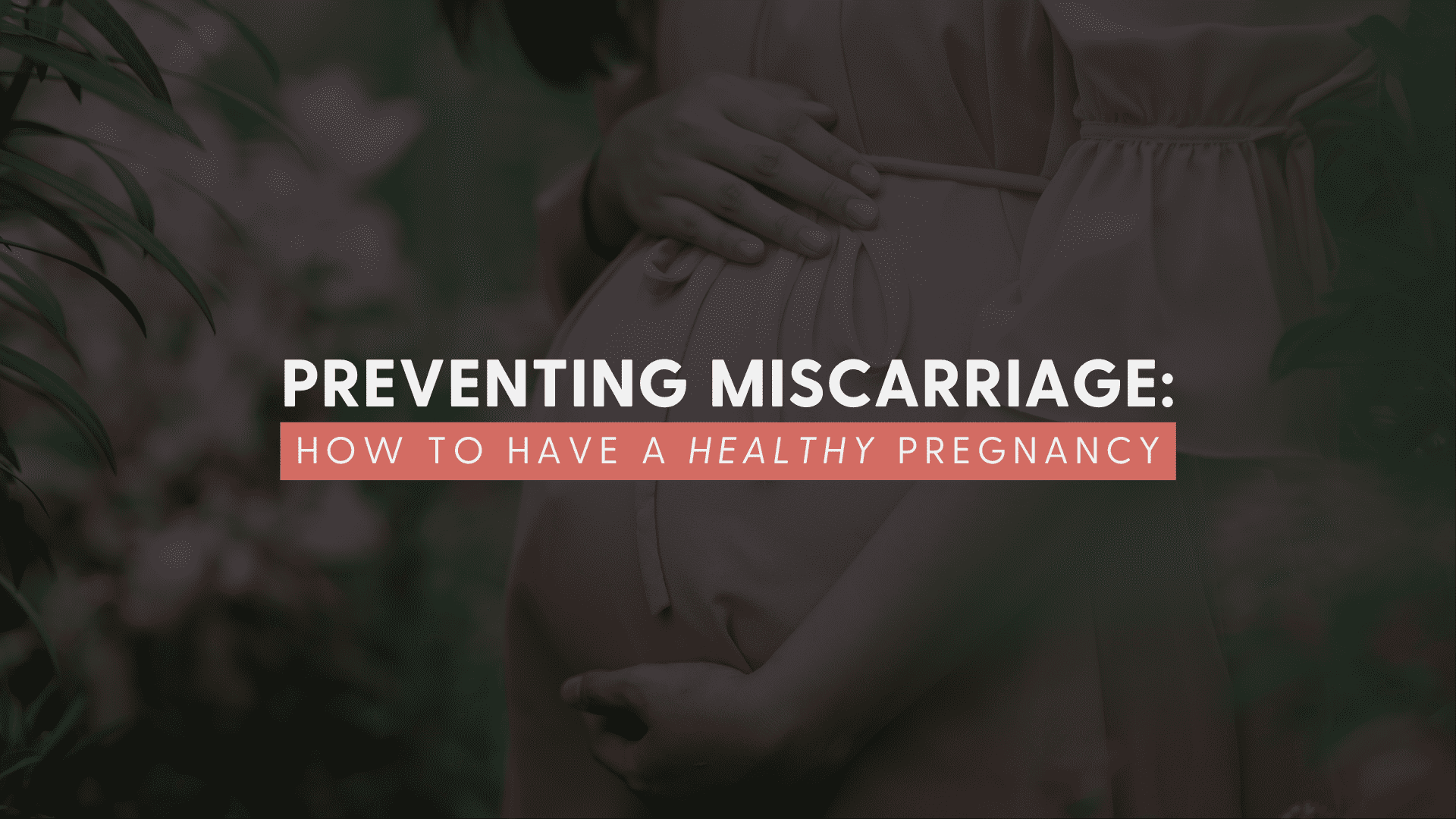Pregnancy is usually a joyful and exciting time. However, when things go wrong, the excitement and anticipation are suddenly replaced with grief and heartbreak. One of the most common situations where this occurs is a miscarriage. Countless times, I have had to tell women in my office they are miscarrying after an ultrasound sadly shows no heartbeat. Women often want to know what they did wrong or what they could have done to avoid miscarriage. Usually, there is no perfect solution on how to prevent miscarriage.
What Are the Signs of a Miscarriage?
Miscarriage is common, occurring in around 26% of all pregnancies and 10% of confirmed pregnancies. Some miscarriages occur before a woman knows she is pregnant. The signs of a miscarriage can vary; Some women have cramping and bleeding, while others may not have any symptoms. In either case, a miscarriage is diagnosed by ultrasound. The baby’s heartbeat should be seen at six weeks gestation (four weeks after fertilization). When the baby does not have a heartbeat at this age, that means they have miscarried. Miscarriage is a devastating loss and underestimated situation.
Is Miscarriage the Same as Abortion?
A miscarriage is the death of a baby in the womb before 20 weeks (after 20 weeks, it is called a stillbirth). Miscarriage should not be confused with abortion, though misinformation was spread about them being the same after Roe v. Wade was overturned.
The medical terminology for miscarriage is “missed abortion,” “incomplete abortion,” or “complete abortion” (depending on whether the pregnancy has passed or not). Elective or induced abortion is the intentional killing of a preborn person. Some doctors refer to very early miscarriages as a “blighted ovum” or a “chemical pregnancy.” I do not prefer these terms, because the bottom line is that this is a precious human being who has died, no matter how far along in development they are.
How To Prevent Miscarriage
Why Does Miscarriage Occur?

As an obstetrician, my job is usually very happy, but one of the sad parts of my work is when I have to tell a woman she is losing her baby. Women commonly ask, "Why did this happen? What did I do wrong?" The answer is that she did nothing wrong. In almost all cases, nothing could have been done to prevent miscarriage. In many miscarriages, there is no known cause. It is estimated that about half of miscarriages occur due to abnormal chromosomes, meaning the baby had a genetic problem and was not forming normally. Nothing can be done to prevent this.
Other causes of miscarriage include congenital anomalies in the uterus, uterine scarring, poorly controlled diabetes, untreated thyroid disease and a condition called antiphospholipid antibody syndrome. Sometimes, miscarriage is attributed to low progesterone levels, called a luteal phase defect. In this situation, often only after several miscarriages, progesterone may help prevent a miscarriage in the future. However, these causes are not common.
Reducing Risks of Miscarriage
Although it is usually not possible to prevent miscarriage, there are essential things to do that make good sense when planning a pregnancy. Smoking and alcohol use can increase risk for miscarriage. A healthy weight and a well-balanced diet are important. If you’re planning to get pregnant, meeting with your doctor beforehand is a good idea. In cases of diabetes, her glucose should be well-controlled before pregnancy. A woman should also talk to her physician about her medications. Some are safe in pregnancy, but others aren’t. Every situation is different, so it’s important for a woman to meet with her doctor.
Having a previous miscarriage is also a risk factor for another one. But, the good news is that the most likely outcome of the next pregnancy is still a live birth. Even after two or three consecutive miscarriages, the most likely outcome of the subsequent pregnancy is a live birth. Everyone’s situation is different, but there is hope for those who have experienced this devastating loss already.
Healing From Miscarriage

It is important to grieve after a miscarriage. Physical activities are something you're typically able to continue after a few days. But emotionally, many women need more time to heal. Some may expect you to "go on with life," but having a miscarriage is losing a child, and allowing yourself to grieve is necessary. Give yourself time to grieve the painful loss of your precious child. It may help to talk to a friend, pastor or counselor and share what you are experiencing. In later miscarriages, when the baby is more formed, it can be comforting to hold your baby and keep some memories such as photos and footprints. You may also want to have a burial service.
I encourage you to meditate on Psalm 34:18:
The LORD is close to the brokenhearted and saves those who are crushed in spirit. The righteous person may have many troubles, but the LORD delivers him from them all.
Psalm 34:18
Why Does God Allow Miscarriages?
God formed us in our mother’s womb, so why does He allow miscarriages? One of the biggest challenges to Christianity is how a loving God could allow the disease, pain and suffering that fills our world. How can a loving God allow pain?
Some would say that since God allows suffering, He cannot be both loving and all-powerful. However, God is both. Like cancer, disease and disability, miscarriages result from the Fall. When Adam and Eve sinned, sin entered the human race, and everything became tarnished. Our world is filled with heartbreak and suffering. Bad things do happen, including miscarriage. The good news is that God can overcome sin and death. He already has. Jesus became a man and suffered, too. He paid the penalty for sin, even as a sinless person. If we follow Him, we will have eternal life that is free of pain and suffering in heaven. I believe babies who have died by miscarriage will be eternally in heaven with God.
There is much heartbreak and suffering in our time on earth. The good news is that God is with us in our pain. He is not a malicious God who wants to torture us, but a loving God who comes alongside us and offers a future free of pain and suffering.
If you have had a miscarriage, know it is not your fault. In almost all situations, there is nothing that you can do to avoid miscarriage. Take time to grieve the loss of your precious baby, and run to the God of the universe, who can walk with you through your loss.



















